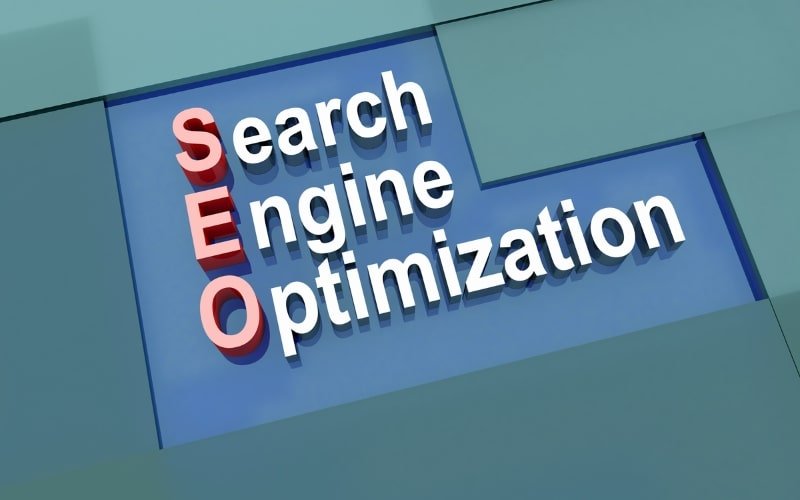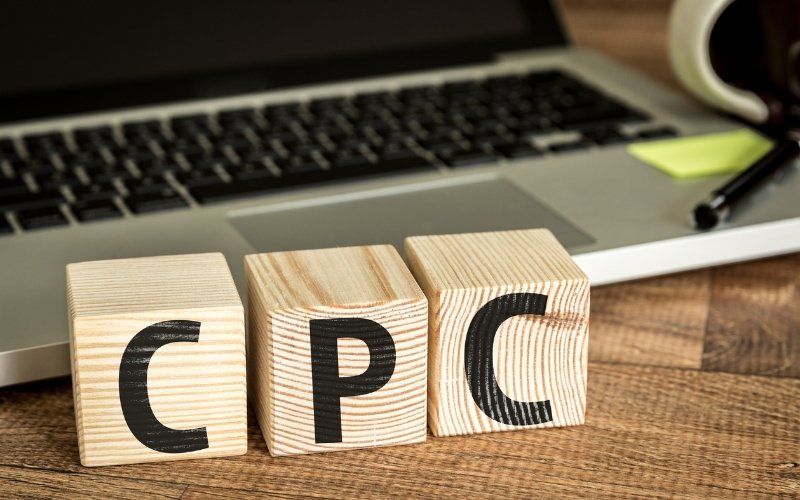When it comes to keyword research, understanding the metrics behind the keywords you’re targeting is crucial. These metrics provide insight into how often people search for a term, how difficult it is to rank for it, and its value in the market. By analyzing these factors—search volume, keyword difficulty, and cost-per-click (CPC)—you can make informed decisions that optimize your SEO strategy and improve your chances of ranking high in search engine results pages (SERPs). This article will explore each of these metrics and explain why they are essential for keyword research.
Search Volume: How Often Is the Keyword Searched?

Search volume is a critical metric in the world of SEO, reflecting how often users search for a particular keyword within a specific time frame, typically on a monthly basis. Understanding search volume is the first step in analyzing keyword metrics, as it provides valuable insights into the potential reach and popularity of a keyword. High search volume indicates strong interest and the potential to attract a large audience. However, it is equally important to assess other factors to ensure effective keyword targeting.
For instance, a keyword like “running shoes” may have an impressive search volume of 100,000 searches per month. While this appears lucrative, the competition for such high-volume keywords is often fierce, requiring a robust SEO strategy to secure a top ranking. Without proper analyzing keyword metrics, targeting such competitive keywords may lead to wasted efforts and resources.
Alternatively, long-tail keywords, which typically have lower search volume, can often yield better results. For example, “best running shoes for flat feet” might have a search volume of around 5,000 searches per month. Though smaller in scale, this keyword attracts a niche audience with a specific intent, increasing the likelihood of conversions. Proper analyzing keyword metrics allows marketers to identify these valuable opportunities where the competition is lower, yet the traffic is highly relevant.
It’s essential to note that search volume alone doesn’t guarantee success. While a keyword with high search volume may drive traffic, it’s equally important to evaluate how well it aligns with your content and audience. A critical part of analyzing keyword metrics is assessing whether a keyword’s search intent matches the goals of your content. A mismatch can lead to high bounce rates and low engagement, undermining the benefits of traffic generated from such keywords.
Moreover, analyzing keyword metrics involves looking beyond raw numbers and considering seasonal trends. Certain keywords may experience spikes in search volume during specific times of the year. For example, “best Christmas gift ideas” will naturally have a higher search volume during the holiday season. Recognizing these trends enables marketers to optimize their content calendar and capitalize on peak search periods.
Lastly, competition analysis is a crucial part of analyzing keyword metrics. Tools like Google Keyword Planner or SEMrush can help evaluate the difficulty of ranking for a keyword. Balancing search volume with competitiveness ensures that your efforts target keywords that are attainable and beneficial.
In conclusion, search volume is a valuable metric but only one piece of the puzzle. Effective analyzing keyword metrics means balancing search volume, competition, and search intent to create a comprehensive keyword strategy that drives meaningful traffic and conversions.
Why Search Volume Matters
- Traffic Potential: Keywords with high search volume can bring a significant amount of traffic to your website. However, it’s not always the best strategy to target only high-volume keywords. You should focus on balancing traffic potential with the feasibility of ranking for the keyword.
- Relevance to Business Goals: The search volume should align with your business goals. If a keyword has a high search volume but isn’t relevant to your product or service, targeting it won’t benefit you in the long run. Always ensure the search volume matches the interests of your target audience.
Keyword Difficulty: How Hard Is It to Rank?

Keyword difficulty, also known as SEO difficulty, is a critical metric that determines how challenging it is to rank for a specific keyword. Analyzing keyword metrics, including keyword difficulty, provides essential insights for crafting a successful SEO strategy. This metric is influenced by several factors, such as the number of competing websites, their domain authority, and the relevance and quality of their content. By analyzing keyword metrics effectively, marketers can identify opportunities to target keywords that align with their goals and resources.
Tools like Ahrefs, Moz, and SEMrush assign a numerical score to each keyword, indicating its difficulty. A high score means more competition, while a lower score suggests a better chance of ranking higher in the search engine results pages (SERPs). This makes analyzing keyword metrics a crucial step in prioritizing which keywords to focus on.
High-Difficulty vs. Low-Difficulty Keywords
For example, a high-difficulty keyword such as “SEO services” might have hundreds of well-established websites competing for the top spots. These competitors likely have robust backlinks, high-quality content, and years of domain authority built up. Analyzing keyword metrics here reveals that investing in ranking for such a term would require significant effort and resources.
On the other hand, a lower-difficulty keyword like “SEO services for small businesses” provides an opportunity for smaller or newer websites to rank. Analyzing keyword metrics for this term may show less competition and greater potential to attract a targeted audience. This demonstrates how analyzing keyword metrics can guide your decisions, helping you focus on realistic and impactful SEO goals.
The Importance of Keyword Intent
While keyword difficulty is essential, it’s equally important to consider keyword intent when analyzing keyword metrics. Understanding whether a keyword aligns with informational, navigational, or transactional intent ensures that the selected keyword drives the right type of traffic. High-difficulty keywords might have broad intent, making them less effective for conversion-focused strategies, while low-difficulty keywords with clear intent can deliver better results.
Practical Applications
By analyzing keyword metrics, you can also identify secondary or long-tail keywords to support your primary keyword strategy. These keywords often have lower difficulty but still attract relevant traffic, improving your chances of ranking and boosting overall site performance.
In conclusion, analyzing keyword metrics such as keyword difficulty helps SEO professionals make informed decisions. Whether targeting high-competition keywords or focusing on niche terms, this analysis is vital for building a strategy that balances effort and impact.
Why Keyword Difficulty Matters
- Realistic Ranking Potential: If you’re just starting out or your website doesn’t have a lot of domain authority, it’s more realistic to target keywords with lower difficulty. These are often referred to as low-hanging fruit because they’re easier to rank for and can provide quicker wins in your SEO strategy.
- Balancing Effort and Results: It’s important to target a mix of low- and medium-difficulty keywords. If you only target high-difficulty keywords, you may struggle to see results in the short term, but by combining them with easier keywords, you can build momentum.
Cost-Per-Click (CPC): What Is the Value of the Keyword?

Cost-per-click (CPC) refers to the amount advertisers are willing to pay for a click on their ad when targeting a specific keyword in paid search campaigns. While CPC is primarily used in paid advertising, it can also provide valuable insights for organic keyword research.
High CPC values indicate that advertisers find the keyword valuable because it leads to conversions or sales. For example, a keyword like “best credit card for rewards” may have a high CPC because financial institutions see significant returns from customers searching for this term. On the other hand, a keyword with a low CPC might not be as valuable or competitive.
Why CPC Matters for SEO
- Commercial Intent: A high CPC indicates that the keyword has strong commercial intent. If advertisers are willing to pay more for clicks, it means the keyword likely drives conversions or leads to revenue. For businesses focused on generating sales, targeting high-CPC keywords can attract visitors who are ready to buy.
- SEO Strategy Insight: Even if you’re not running a paid search campaign, understanding the CPC of a keyword helps prioritize keywords with more commercial potential. A keyword with a high CPC can indicate an opportunity to create content that attracts a high-value audience organically, saving you money on paid campaigns.
How to Use These Metrics in Your Keyword Research
When you’re conducting keyword research, it’s essential to consider search volume, keyword difficulty, and CPC together to build a balanced SEO strategy. Here’s how to apply these metrics:
- Target a Range of Keywords: Use a mix of high and low search volume keywords to drive both broad and targeted traffic to your website. High-volume keywords can increase visibility, while lower-volume keywords may convert better due to more specific user intent.
- Balance Keyword Difficulty: Prioritize keywords with low to medium difficulty if you’re just starting out, but don’t be afraid to target some high-difficulty keywords for long-term growth.
- Focus on Commercial Value: Keywords with high CPCs can be valuable even in organic SEO. If a keyword has strong commercial intent, create high-quality content to capture that traffic without relying solely on paid campaigns.
Conclusion
Understanding and analyzing keyword metrics like search volume, keyword difficulty, and CPC is crucial for developing an effective SEO strategy. By balancing these factors, you can target the right keywords to drive traffic, rank higher in search engine results, and increase conversions. Whether you’re just starting out or refining your SEO strategy, leveraging these keyword metrics will help you make data-driven decisions that lead to long-term success.

